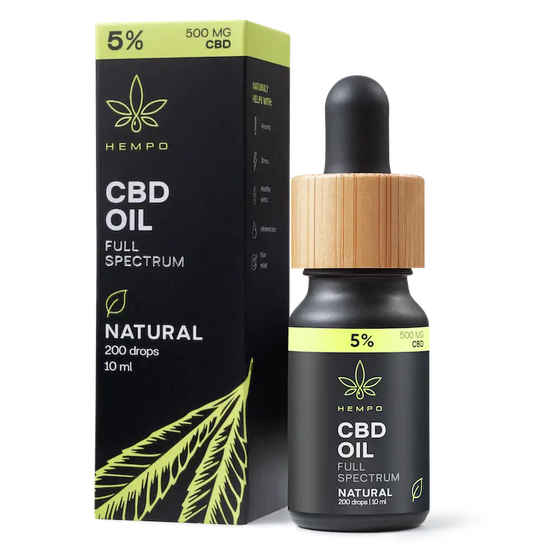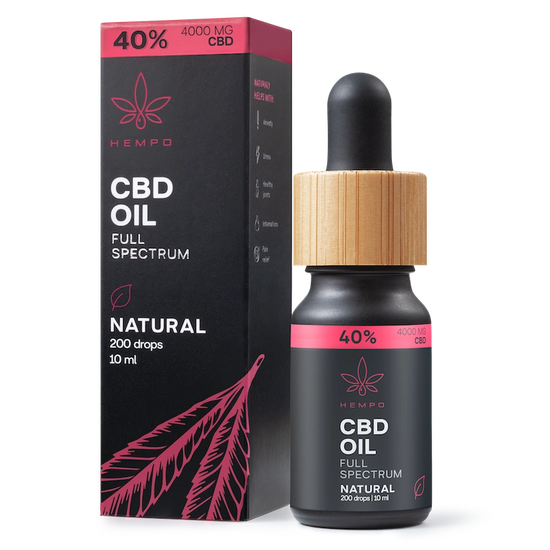CBD and autism: can hemp products help?
CBD and autism is quite a hot and very relevant topic. In fact, CBD, or cannabidiol, can be used to alleviate various symptoms of autism.
Neither CBD nor any other medication can completely cure autism symptoms such as communication difficulties, coordination issues, and repetitive anxious behaviors. However, CBD may help alleviate some symptoms in individuals with autism, such as temper tantrums or improving focus and attention.
Autism spectrum disorders vary in severity and neurological origin. They usually affect development. Autism is characterised by challenges, such as communication difficulties, attention problems, lack of socialisation, limited interest in the environment and strong reactions to stimuli (e.g. noise). Over the past three decades, the number of children diagnosed with autism has increased several times. According to various estimates, approximately 1 in 54 individuals are now diagnosed with autism. Some people with autism also have a variety of co-occurring medical conditions, such as epilepsy, intellectual disabilities and behavioural problems.
The cause of autism is not yet fully known. Scientists and doctors hypothesise that several genetic and environmental factors may be involved. Table of Contents
Note: This and other articles on Hempo's blog are for informational purposes only. According to the directive of the European Commission, cannabidiol is classified as a 'new food', therefore CBD products should not be used as a food supplement in Lithuania.

What is Autism Spectrum Disorder?
Autism spectrum disorder (ASD) is a complex developmental condition characterized by impairments in social interaction, communication, and restricted and repetitive behaviors. These symptoms that characterize ASD can range in severity from mild to severe, so each case of this disease is unique. A better understanding of what Autism Spectrum Disorder is requires a multifaceted approach that requires the ability to recognize this illness from its early signs. These early signs may include delayed speech development, limited eye contact, and repetitive body movements. Diagnosing autism as early as possible is very important as it paves the way for early intervention and support for everyone with the condition.
Research into autism disorder spans many areas, including the potential role of CBD in the management of autism symptoms. It is important to note that there are many studies that have been conducted to support the benefits of CBD in this area. These studies have shown that CBD can effectively help manage a variety of symptoms associated with autism spectrum disorders (ASDs), such as anxiety and sleep disorders.
Living with autism spectrum disorder presents many challenges. The path of life for individuals with autism and their families is often not easy - individuals with this disease require specialized educational strategies and therapy, which are usually aimed at improving communication and social skills. In order to create a supportive and understanding environment for people with this disease, it is very important to emphasize not only the weak qualities of people with ASD, but also the strengths and extraordinary abilities.
In order to understand what autism spectrum disorder is, you basically need to have a good understanding of the symptoms of this disease, the methods of diagnosis and treatment, and the daily experiences of people with ASD. As research progresses and public awareness of the topic increases, people with ASD and their loved ones can feel better.
CBD and autism: when does it help?
Regardless of the cause of autism and the severity of cases, CBD can significantly improve a person's well-being. Here are the benefits of CBD:
- Controlling tantrums. Anger and aggression are typical symptoms of autism. Children and adults with more severe social and communication problems often have higher than normal levels of stress.
High levels of stress make it difficult to control emotions, leading to episodes of aggression and anger. Luckily, cannabidiol is a great helper here. CBD has long been known to help manage perceived stress levels. Regular use of CBD stimulates the release of serotonin, known as the happy hormone, and other positive hormones. It lifts the mood, reduces tension and increases self-confidence, making it easier to react and participate in various social situations. The latter property of CBD was proven by a scientific study conducted in the United States in 2015.
- Appetite improvement/control. A common problem of children and adults with autism today is various nutritional disorders: food selectivity (e.g. due to sensitivity to stimuli, a person cannot eat specific fruits, vegetables or certain dishes) and irregular, unbalanced diet. Most of the time, it means that preference is given to unhealthy foodstuffs, semi-finished products and snacks, while fruit and vegetables are more often refused. It can lead to being overweight and a general deterioration of well-being.
CBD can help regulate appetite while also treating symptoms commonly associated with obesity.
- Concentration.
Some patients with an autism spectrum disorder may find it hard to focus on things that do not interest or stimulate them. It includes a wide range of activities that require prolonged attention, such as reading a book, attending classes, doing monotonous office work, etc.
CBD can reduce distraction while increasing alertness and attentiveness. At the same time, this cannabinoid positively affects concentration and memory, strengthens the sense of calmness and balances the mood.
CBD and Autism: Is It Risky?
When considering CBD and autism, it is worth noting that CBD oil is considered safe, but it is important to be aware of possible side effects. One is the potential interaction of CBD with other medications that a child with ASD is already taking. There is also the possibility that some children using CBD for autism may experience side effects such as fatigue, irritability, or changes in appetite.
Another important aspect to consider is the quality of CBD products. Some CBD products may contain higher amounts of THC, which may cause additional unwanted effects. It is always best to choose only CBD products from reliable manufacturers. Finally, it is important to note that while CBD oil can help with autism symptoms, it should not be used in place of other treatments recommended by a healthcare professional.
If you are concerned that CBD may cause weight gain, it is important to note that there is currently no evidence that CBD oil promotes weight gain. On the contrary, some studies show that CBD can help with weight loss. A study published in the journal Molecular and Cellular Biochemistry found that CBD can promote adipose browning, the process by which white adipose tissue becomes brown adipose tissue. Brown adipose tissue is more active and burns more calories. Another study published in the journal Obesity found that CBD reduced appetite and food intake in rats. Although this study was conducted on animals, it suggests the possibility that CBD may be beneficial for weight loss. If you are concerned about your child's weight, you should consult a healthcare professional when using CBD oil for autism symptoms. They can help determine the right treatment plan based on your child's specific needs.
CBD dosing in children with autism
Many experts claim that you cannot overdose on CBD oil. However, many healthcare professionals agree that a smart and responsible approach to any treatment is the key to success. Proper CBD oil dosage is essential to avoid possible side effects such as nausea, vomiting and diarrhea or other gastrointestinal disturbances.
Based on a study conducted in 2021 by Harvard Medical School, only about 10% of CBD users experienced side effects, which were mostly due to improper dosage of CBD. Healthcare professionals also stress that small changes can really add up to great long-term results, so it's important to discuss any medication or other treatment-related dosage issues with your doctor, especially when it comes to children, to ensure that the benefits are greater than the potential risk.
CBD and autism: what does the science say?
CBD oil is widely used to alleviate a variety of health problems, and recent research is increasingly revealing its potential. In particular, the use of CBD oil to alleviate the symptoms of autism is receiving a lot of attention. Although the effects of CBD on autism have not been sufficiently studied in the past, we now have a variety of studies supporting its positive effects.
One of the most striking examples is recent research involving children with autism. These studies have shown that CBD oil can help reduce symptoms of autism, such as anxiety and difficulties with social interaction. For example, a study conducted by Israeli researchers with 60 children not only demonstrated the effectiveness of CBD oil, but also encouraged further research in this area.
This study has laid the foundation for further research, the primary goal of which will be to determine the safety and efficacy of CBD oil as a therapeutic tool for children with autism spectrum disorder.

CBD and THC: Are they the same?
Both CBD and THC (tetrahydrocannabinol) are natural compounds derived from the same plant, hemp. The chemical composition and mechanisms of action of CBD and THC are very similar. Once in the body, both CBD and THC cannabinoids bind to neurotransmitters in the brain and affect things like mood, pain receptors, sleep and memory. Experts note that some people still confuse these products and stay away from the safe and beneficial cannabidiol (CBD) because of THC stereotypes.
In reality, these compounds have many fundamental differences, and human and animal bodies accept them very differently. Here are the aspects to consider.
-
Effect on the mental health
The THC compound is best known for its intoxicating effect - the psychoactive response. This cannabinoid is a well-known hallucinogen that causes intoxication, hallucinations and other psychedelic effects. Because of these properties, THC is illegal in Lithuania and many other countries or its content in the respective products is limited.
Meanwhile, the CBD compound has no psychoactive effect and does not cause intoxication or other unpleasant sensations. Although CBD products can contain up to 0.02% trace amounts of THC, this minimal amount is not enough to cause any psychoactive response. CBD is known to have many health benefits and does not cause the side effects of THC. It means that CBD may be a perfect choice for people diagnosed with autism spectrum disorders.
- Health benefits
There are many health benefits associated with the use of CBD oil. CBD binds to your body's endocannabinoid receptors, and most people find that CBD helps with autism symptoms and other complex conditions such as arthritis, Crohn's disease, diabetes, multiple sclerosis, and cancer treatment . Others use it for milder day-to-day problems such as skin problems (dryness/acne), sleep problems, anxiety, various pains, neurological disorders, or suppressed immunity. Cannabidiol is available over the counter in many states and does not require a separate license or prescription.
- Undesirable side effects
CBD rarely has noticeable side effects even when the product is used in relatively high doses. CBD is widely used by both athletes and people with various medical conditions, so cannabidiol can be considered safe for virtually everyone (unless otherwise directed by doctors).
That being said, THC has some well-known side effects, such as increased pulse rate, incoordination, nausea, dry mouth, red eyes, slowed reaction time or impaired short-term memory. These side effects are related to the compound's psychoactive properties and may not be good for people with certain health conditions, including autism.
Summary
Clearly, high-quality, certified cannabidiol appears to be a very promising solution to treat behavioral problems associated with autism. CBD products also improve concentration, appetite and digestion, making it very important for people with autism spectrum disorders.
This means that CBD and autism are a truly noteworthy combination that can significantly improve your quality of life!





